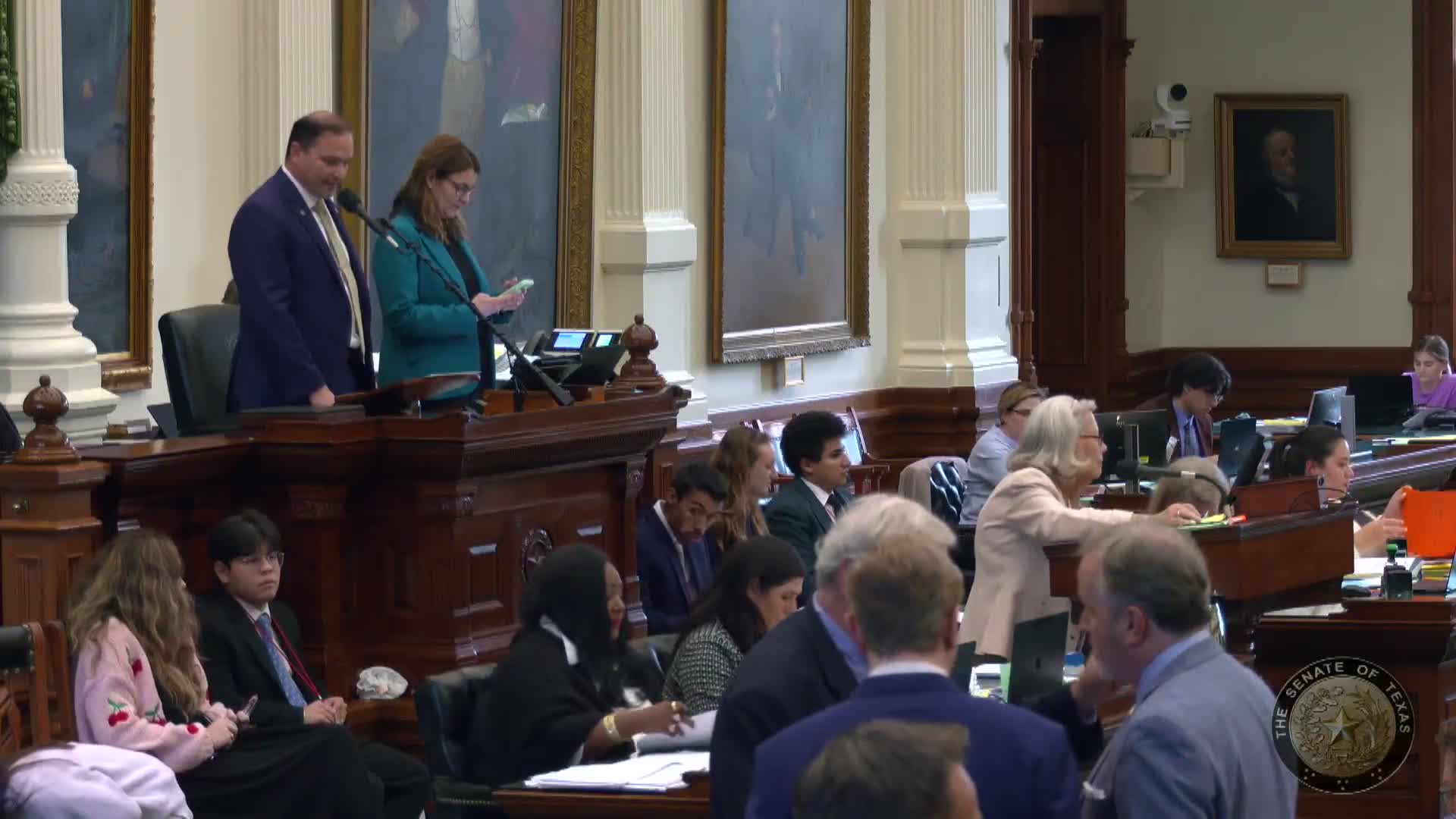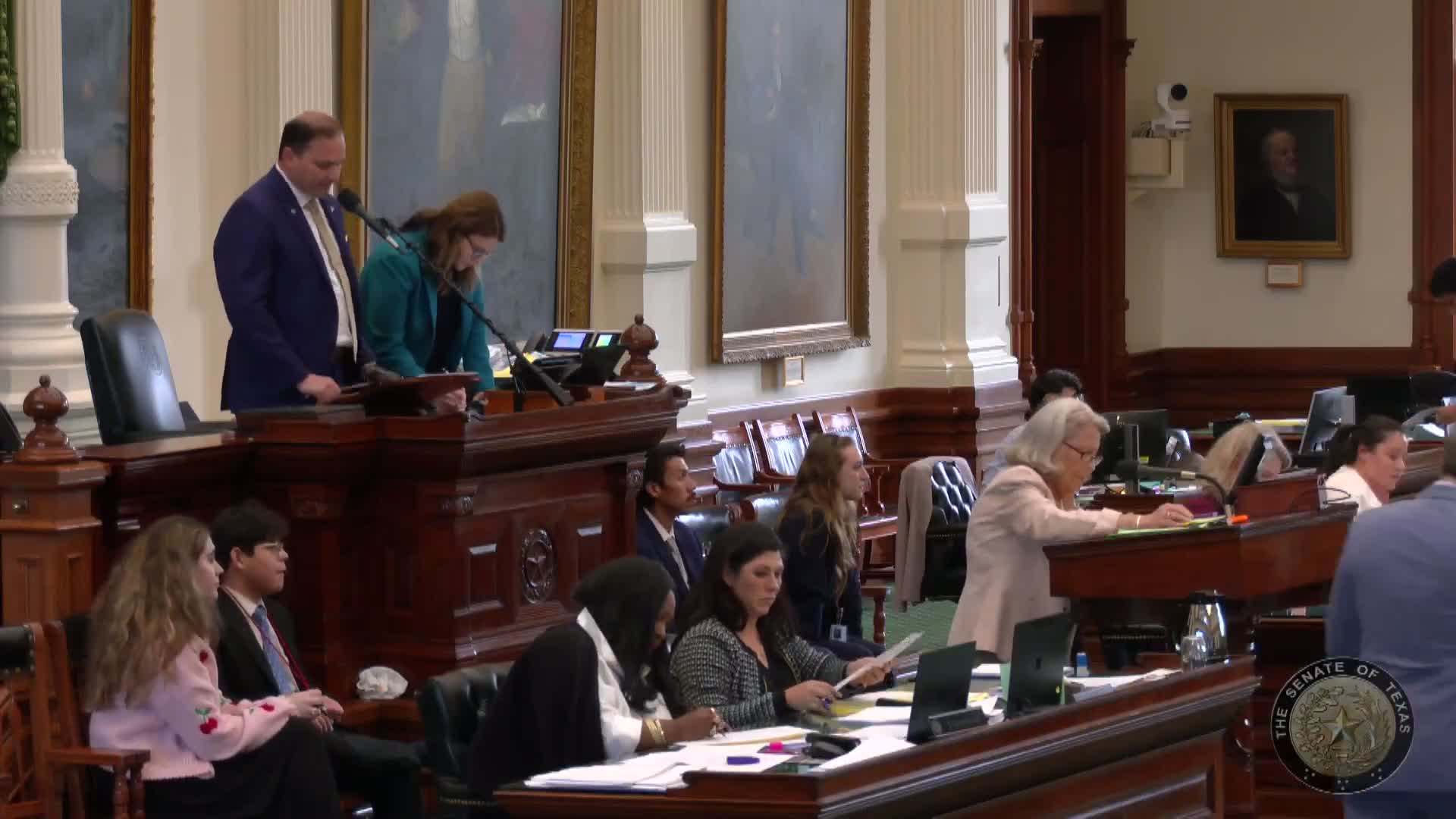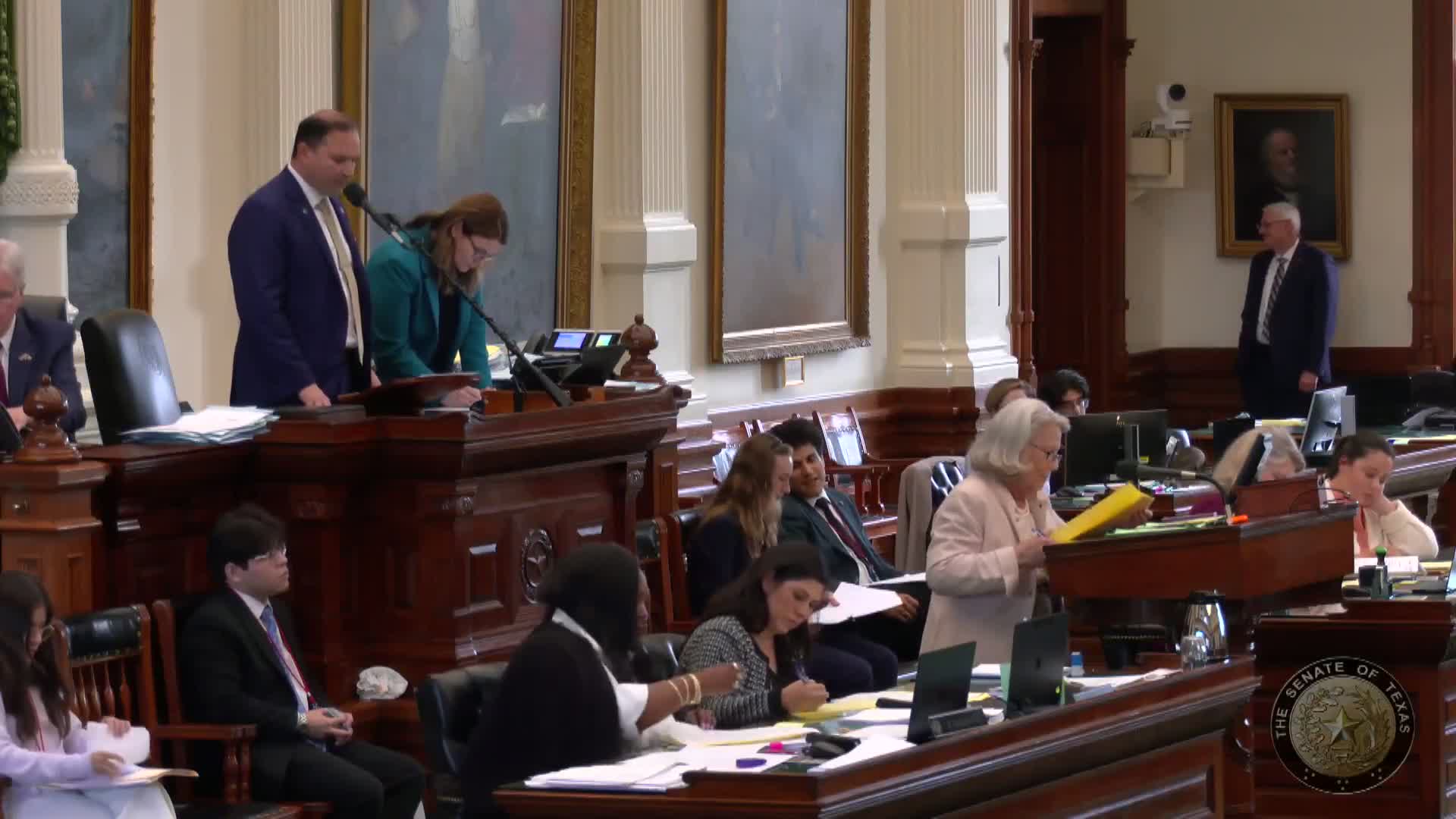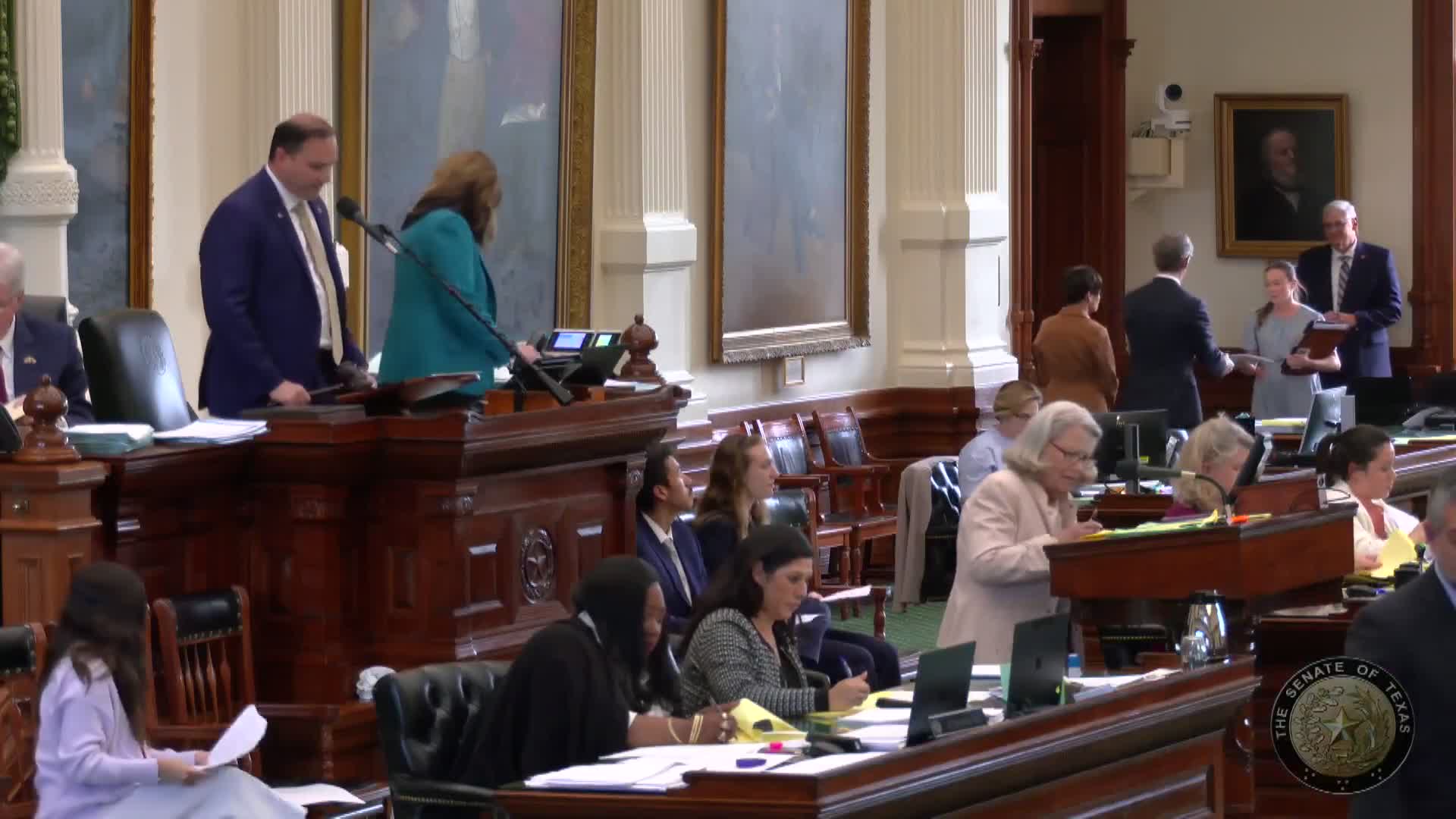Article not found
This article is no longer available. But don't worry—we've gathered other articles that discuss the same topic.

Senate adopts bill to create governor’s task force on early childhood governance, adds standards and fiscal‑note protections

Senate approves creation of Finsky Road municipal utility district in Harris County

Senate approves local bill allowing compensation for directors of the Tejana Groundwater Conservation District

